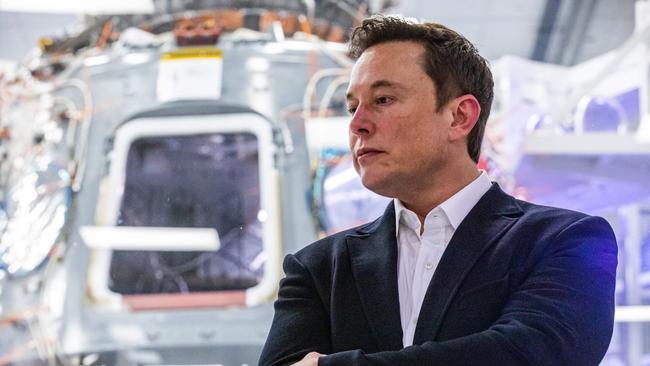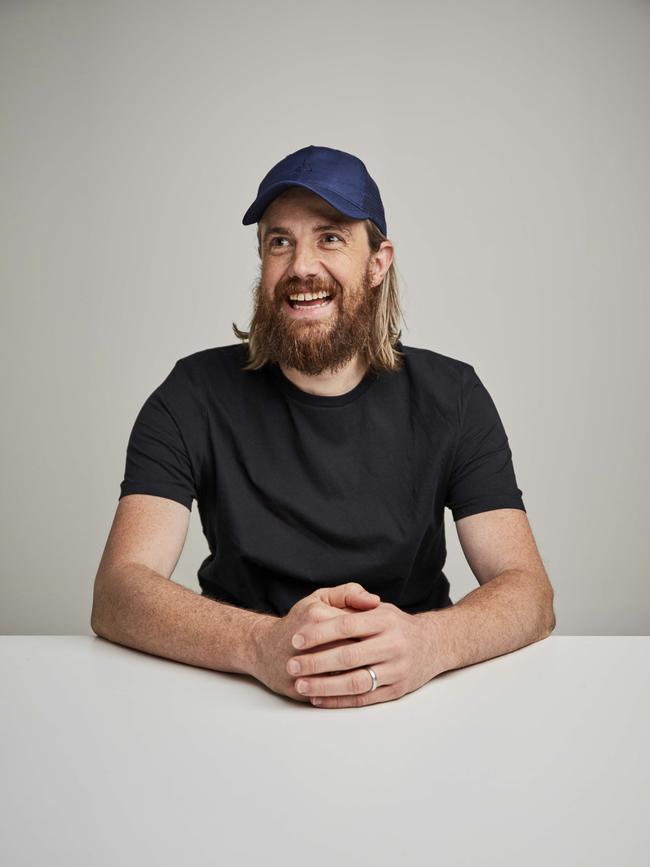Atlassian billionaire Mike Cannon-Brookes wants to go to Mars, but there’s a catch
The Atlassian billionaire is hatching his own plans to go to Mars – well at least sell software there – and already has a head start on Elon Musk to fulfil a long-held dream.

Atlassian billionaire Mike Cannon-Brookes is hatching his own plans to go to Mars – well at least sell software there – and already has a head start on Elon Musk.
Mr Musk has grand plans to build a city on Mars by 2050, with about one million people calling it home.
Atlassian software has already been used by NASA to assist in unmanned missions to Earth’s planetary neighbour, helping pave the way for human travel. It is part of Atlassian’s long-held ambition to become a global household name, taking on the likes of juggernauts Microsoft and Google.
“We want to unleash the potential of every team. That means every team in every company, in every country and every continent on every planet – which I always love when people add that at the end, I’m like, ‘man, that’s ambitious. When we have those Martian teams will hopefully unleash their potential as well,” Mr Cannon-Brookes told The Australian.
Mr Cannon-Brookes and Mr Musk have shared a friendly rivalry. After all, a Twitter challenge from Mr Cannon-Brookes led to Mr Musk building South Australia’s first battery system in 2017 which he later boosted by an extra 50 per cent.

But in regard to Atlassian’s own ambitions, Mr Cannon-Brookes Brookes declared a sweetener at the company’s annual team conference at Anaheim, in the shadows of Disneyland, this week.
He will make the Atlassian new artificial intelligence assistant free for its customers.
Dubbed Rovo, the platform that allows companies to build their own AI-powered “agents” was previously priced at $US20 ($32.69) per user a month and competes alongside Microsoft’s Copilot.
“We want to write things affordably and get them out to as many people as possible. That’s always been our goal,” Mr Cannon-Brookes said.
“When you start your day, what application do you open first as a knowledge worker? You’re a laptop warrior. You sit at a desk most of your day. Let’s just say, somewhere in the world, we would like a greater proportion of those people to open an Atlassian application first in the day.
Big tech companies are now talking up how they can help businesses build AI agents, which are capable of performing a variety of tasks autonomously in an effort to lift productivity. Microsoft has even created a virtual human for Germany’s Commerzbank, while Adobe has also integrated agents across its suite of products – such as Photoshop and Premiere Pro – saying it will make artists more creative by stripping out mundane tasks.
Atlassian – which has a market value of $US54.92bn – unveiled Rovo last year as it sought to up ante in the AI race against Microsoft and Google. And as he was saying it would become freely available, Google Cloud chief executive Thomas Kurian was hosting his own showcase in Las Vegas, while Microsoft celebrated its 50th anniversary the weekend before.

“We have north of a million monthly users of our AI features at the moment. It’s growing incredibly fast,” Mr Cannon-Brookes said.
“Atlassian long said, we want to get to the Fortune 500,000. We’re not just about the Fortune 500 we’re about the Fortune 500,000 in terms of the impact.”
Mr Cannon-Brookes said Rovo was different from Microsoft’s and Google’s products and that it was more than a “souped-up version of chatbots”, making Atlassian unique. Rovo is specifically aimed at making teams – rather than just individual employees – more productive.
It pulls data from Atlassian’s project management software, including Jira, Confluence and Trello, and a company’s HR system and other software such as Microsoft SharePoint, Google Workspace and Slack.

It can perform tasks like help answer employees’ questions about policy procedures. Mr Cannon-Brooke said searching for answers in an organisation alone was a big drag on productivity, with Atlassian’s State of Teams survey revealing knowledge workers spend about 25 per cent of their time – or collectively 2.4 billion hours a year – performing such searches.
“The reaction from customers has been really great. We built something phenomenal which delivers a huge amount of Team value … so you naturally want to get that out right to as many people as you can,” Mr Cannon-Brookes said when asked why he had decided to make it free.
This does not mean as more companies adopt AI tools that they expect them to be available at no cost.
But Mr Cannon-Brookes said companies wanted software to be smarter, highlighting how it has transformed using video messaging platform Loom, which Atlassian acquired for $1.5bn in late 2023.
“When you record a loom video, it just writes the title for you, right, it scans the transcript, looks through your video probably and 70 per cent of the time, I’m just like, ‘sweet, that title is great’.
“It’s not a front-page article headline like accuracy, but it’s pretty damn good most of the time, and gets better every time. That expectation, that software is just going to be a little bit smarter and do things, you know, ‘I don’t have to write a title, I don’t have to think about the title’ that I think is going to become a default over time.”
“And so it’s a competitive advantage for us.”
Fred Frenzel, Project Management Office Director, HarperCollins – which is owned by News Corp, publisher of this masthead – said “one of the most basic, yet most impactful ways I use Rovo Chat in our tests is to clean up meeting notes and automatically turn them into tickets in Jira”.
“A one-hour meeting used to turn into another hour of project management work with all the follow-up. But with Rovo, this work can be done in 15 minutes, and the time I saved can be put toward more strategic work.”
Rovo will be part of the subscriptions of Jira, Confluence, and Jira Service Management users rather than an added extra.




To join the conversation, please log in. Don't have an account? Register
Join the conversation, you are commenting as Logout